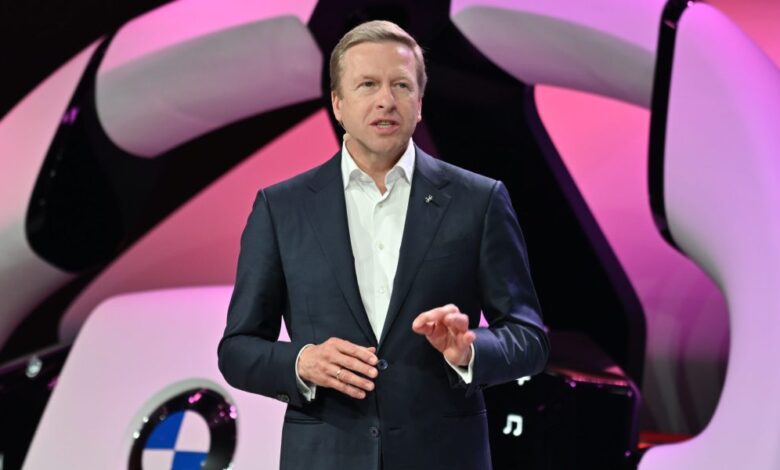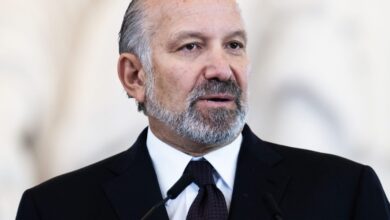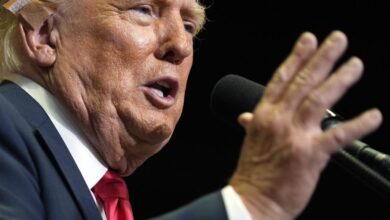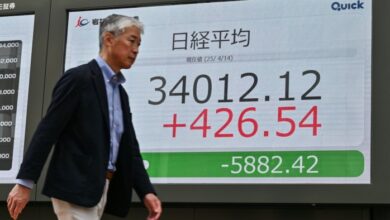Betting all your chips on EVs is a ‘dead end,’ BMW tells shareholders: ‘That should be obvious by now’


- BMW’s chief executive Oliver Zipse felt his company’s reluctance to jump on the EV bandwagon has been vindicated even as he prepares to launch his first of several models underpinned by an platform built from the ground up for EVs. “We took a clear stand on this, even in the face of strong headwinds. Now the wind has shifted in our direction,” he said.
Market research firm Gartner dubbed it the “trough of disillusionment”: the stage when a buzzy new technology first fails to live up to its hype.
One of the earliest to predict electric vehicles would suffer its own growing pains has been BMW. For years, executives at the German premium carmaker have been warning car buyers would not make the switch as quickly as anticipated, despite all the excitement around Tesla.
Now, it’s told shareholders it would stand by its commitment to offer customers a wide range of drivetrain options including combustion engine, hybrid, and even hydrogen fuel-cell powered cars, with the latter debuting in 2028.
“Technology openness means following the markets, because markets evolve, but not all a the same pace,” said CEO Oliver Zipse at BMW’s annual meeting on Wednesday. “E-mobility as the sole technology leads to a dead end. That should be obvious by now.”
Some five years ago, a number of brands including Mercedes-Benz, Volkswagen, and Volvo proclaimed ambitious targets for how soon they would switch to EVs. By comparison, BMW’s reluctance to jump on the EV bandwagon saw rivals like VW’s ex-CEO Herbert Diess criticize the company for slowing down progress.
“We took a clear stand on this, even in the face of strong headwinds. Now the wind has shifted in our direction,” Zipse continued.
BMW turned bearish on EVs after the company was burned by the i3, a small EV for inner-city driving that launched in 2013. Featuring a lightweight but expensive carbon-fibre body, it was supposed to be a trend setter, but ended up a financial failure in the eyes of analysts and investors.
Legacy brands struggled to convince their customer base of the advantages of EVs
At the start of the decade, this EV evangelizing seemed to make sense as Tesla was all the rage and CEO Elon Musk struggled to keep up with demand. In 2020, Tesla eclipsed all automotive peers to become the most valuable carmaker in the world despite selling only half a million vehicles that year.
BMW’s rivals had already poured billions into the development of dedicated architectures capable of economically building a wide variety of EVs in all shapes and sizes—such as the EVA2 at Mercedes-Benz and Volkswagen’s vaunted MEB platform.
The results have been sobering. Legacy brands have had a difficult time explaining the advantages of the technology to their skeptical customers. Carmakers have complained there are still plenty of popular myths around EVs that need to be debunked, including whether owners might be electrocuted while charging in the rain.
By comparison, Tesla could cater to a predominantly progressive audience eager to be the first to test out the latest that technology had to offer, and were well-versed about the various pros and cons.
Now, many of these same legacy companies such as Mercedes and Volvo have been walking back their more ambitious EV sales targets.
Start of production of new iX3 at year-end
The slower-than-expected uptake in EVs hasn’t left Tesla untouched either. Last year, it buried its own 2030 sales target, suffered its first annual sales decline since the Model Y launched, and saw its slump continue into the first quarter.
For one, the Chinese EV market, which is the world’s largest, is increasingly shutting out western brands that had expected to transfer their market share in the traditional combustion-engine market to the EV market. Even Tesla dropped to eighth place last month, from third in 2024.
Other countries like the United States are flat-out no longer willing to finance the purchase of a more expensive EV with a $7,500 per car federal tax subsidy. Europe also has experienced disparate levels of interest.
While few new cars sold in oil-rich Norway still require gasoline or diesel, in the euro area’s third-largest economy, Italy, the EV share of the new-car market languished at just 4% last year.
“The differences are too severe, even within Europe,” Zipse said, whose company’s own global EV sales grew by 14% to over 426,500 vehicles across the BMW, Mini, and Rolls-Royce brands.
Nevertheless, even the Munich carmaker has dropped its opposition to dedicated EV platforms. The BMW iX3 mid-size electric crossover, scheduled to go into production at the end of this year in Hungary, is based on the Neue Klasse, an all-new and EV-only architecture.
This story was originally featured on Fortune.com
https://fortune.com/img-assets/wp-content/uploads/2025/05/GettyImages-2211890859-e1747322746563.jpg?resize=1200,600
2025-05-15 16:49:53





